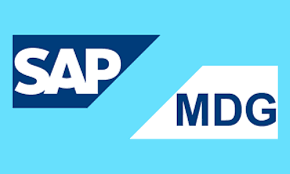In the era of data-driven decision-making, effective management and governance of master data are critical for organizations striving for operational excellence and strategic advantage. SAP Master Data Governance (MDG) emerges as a premier solution to streamline and govern master data across the enterprise. This comprehensive guide delves into the functionalities, benefits, and strategic advantages of SAP MDG Course, demonstrating how it can empower your organization to achieve data integrity, consistency, and compliance.
What is SAP MDG?
SAP Master Data Governance (MDG) is an integrated data management solution designed to create, maintain, and govern master data across the enterprise. It provides a unified platform for managing critical business data, ensuring accuracy, consistency, and compliance with data governance policies. SAP MDG supports various domains such as customer, supplier, material, and financial data, facilitating seamless integration with SAP and non-SAP systems.
Key Features of SAP MDG
1. Centralized Data Management
- Unified Repository: Centralizes master data management, ensuring a single source of truth for critical business data.
- Cross-Domain Support: Supports multiple data domains, including customer, supplier, material, and financial data, providing a holistic data management solution.
2. Data Quality and Validation
- Data Standardization: Enforces data standards and policies to ensure data consistency and accuracy.
- Validation Rules: Implements validation rules and checks to prevent data entry errors and maintain data integrity.
3. Workflow and Process Automation
- Approval Workflows: Automates data governance workflows with predefined approval processes, enhancing efficiency and compliance.
- Change Management: Manages data changes through controlled processes, ensuring traceability and accountability.
4. Integration and Interoperability
- Seamless Integration: Integrates seamlessly with SAP and non-SAP systems, facilitating end-to-end data management.
- Data Synchronization: Ensures real-time synchronization of master data across various systems and applications.
5. Data Governance and Compliance
- Policy Enforcement: Enforces data governance policies and standards across the organization.
- Regulatory Compliance: Supports compliance with regulatory requirements such as GDPR, ensuring data privacy and protection.
Strategic Benefits of Implementing SAP MDG
1. Enhanced Data Quality
- Accuracy and Consistency: Ensures that master data is accurate, consistent, and up-to-date, reducing data-related errors.
- Data Validation: Improves data quality through rigorous validation and standardization processes.
2. Improved Operational Efficiency
- Automated Workflows: Streamlines data management processes through automation, reducing manual effort and improving efficiency.
- Centralized Data Access: Provides centralized access to master data, enhancing collaboration and decision-making.
3. Reduced Compliance Risk
- Regulatory Adherence: Ensures compliance with data governance and regulatory requirements, mitigating the risk of non-compliance penalties.
- Audit Trails: Maintains detailed audit trails of data changes, ensuring traceability and accountability.
4. Increased Agility and Responsiveness
- Real-Time Data: Provides real-time access to master data, enabling quick response to business changes and market dynamics.
- Flexible Integration: Facilitates seamless integration with existing systems, allowing for scalable and adaptable data management.
5. Strategic Decision-Making
- Data-Driven Insights: Enhances decision-making capabilities by providing accurate and reliable master data.
- Holistic View: Offers a comprehensive view of master data across the organization, supporting strategic planning and analysis.
Real-World Applications of SAP MDG
1. Manufacturing
- Product Data Management: Manages product master data, ensuring consistency and accuracy across the supply chain.
- Supplier Data Governance: Governs supplier data to enhance procurement processes and supplier relationship management.
2. Retail
- Customer Data Management: Maintains accurate and up-to-date customer data, improving customer service and marketing efforts.
- Inventory Management: Ensures accurate inventory data, optimizing stock levels and reducing costs.
3. Financial Services
- Financial Data Governance: Governs financial master data to ensure regulatory compliance and accurate financial reporting.
- Risk Management: Enhances risk management by providing reliable and consistent financial data.
4. Healthcare
- Patient Data Management: Ensures the accuracy and privacy of patient data, improving patient care and compliance with healthcare regulations.
- Provider Data Governance: Manages provider data to enhance operational efficiency and regulatory compliance.
Implementation Best Practices for SAP MDG
-
Define Clear Objectives:
- Establish clear data governance objectives and align them with business goals.
- Ensure executive sponsorship and stakeholder buy-in to drive the initiative.
-
Standardize Data Processes:
- Develop standardized processes for data creation, maintenance, and governance.
- Implement data quality and validation rules to ensure data integrity.
-
Leverage Automation:
- Utilize workflow automation to streamline data governance processes and reduce manual effort.
- Implement automated approval workflows to enhance efficiency and compliance.
-
Ensure Comprehensive Training:
- Provide comprehensive training to users and stakeholders on SAP MDG functionalities and best practices.
- Foster a culture of data stewardship and accountability across the organization.
-
Monitor and Optimize:
- Continuously monitor data quality and governance processes to identify areas for improvement.
- Regularly review and update data governance policies to adapt to changing business needs and regulatory requirements.
Conclusion: Elevate Your Data Management with SAP MDG
SAP MDG stands as a cornerstone for organizations seeking to enhance their data management and governance processes. With its comprehensive features, seamless integration, and strategic benefits, SAP MDG empowers businesses to achieve data integrity, consistency, and compliance. Whether you are looking to improve data quality, ensure regulatory compliance, or streamline data management processes, SAP MDG offers the tools and capabilities needed to succeed in today's data-driven landscape.
To learn more about how SAP MDG can transform your data management practices, contact us today and discover the power of SAP's leading data governance solution.



